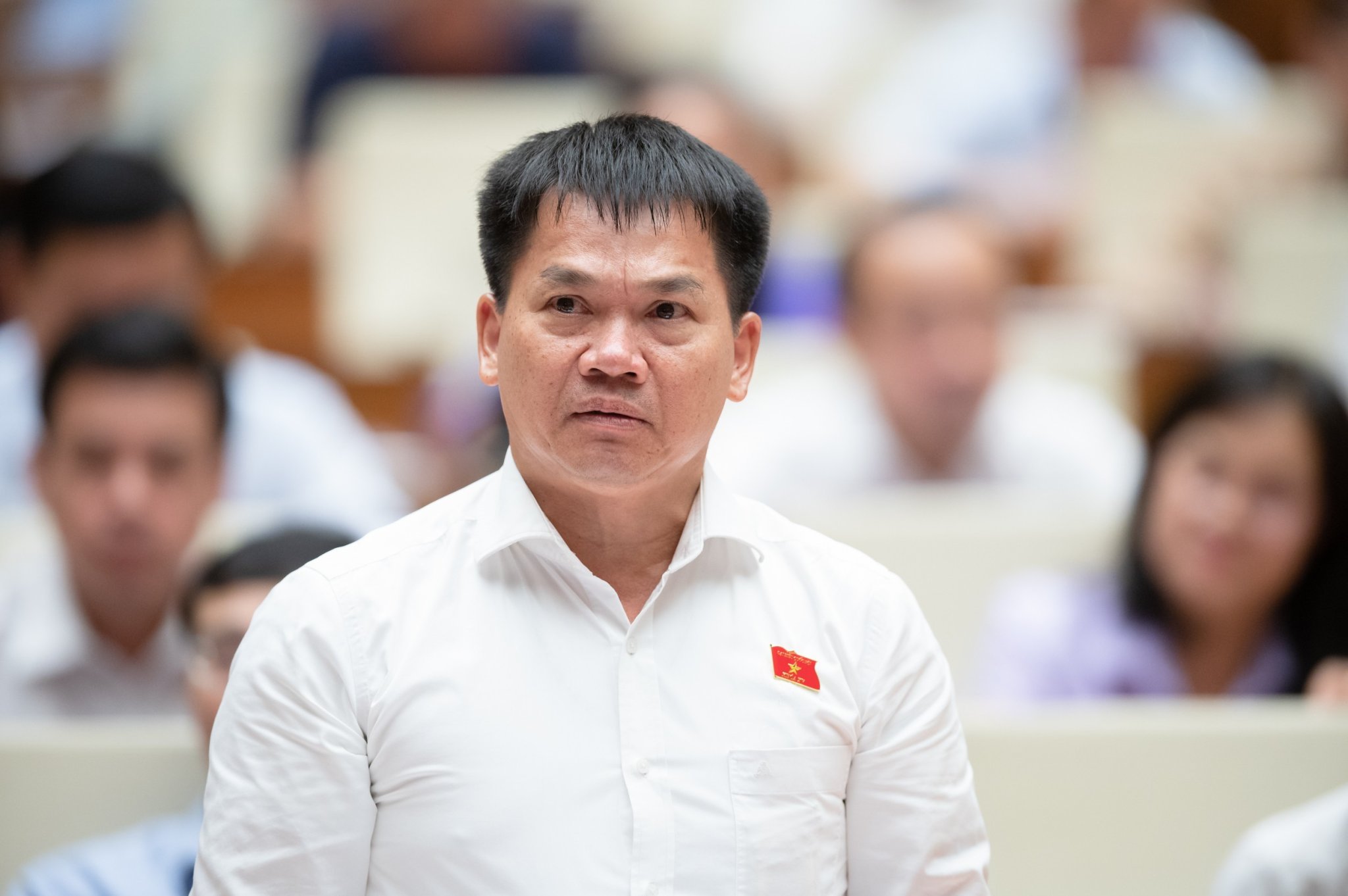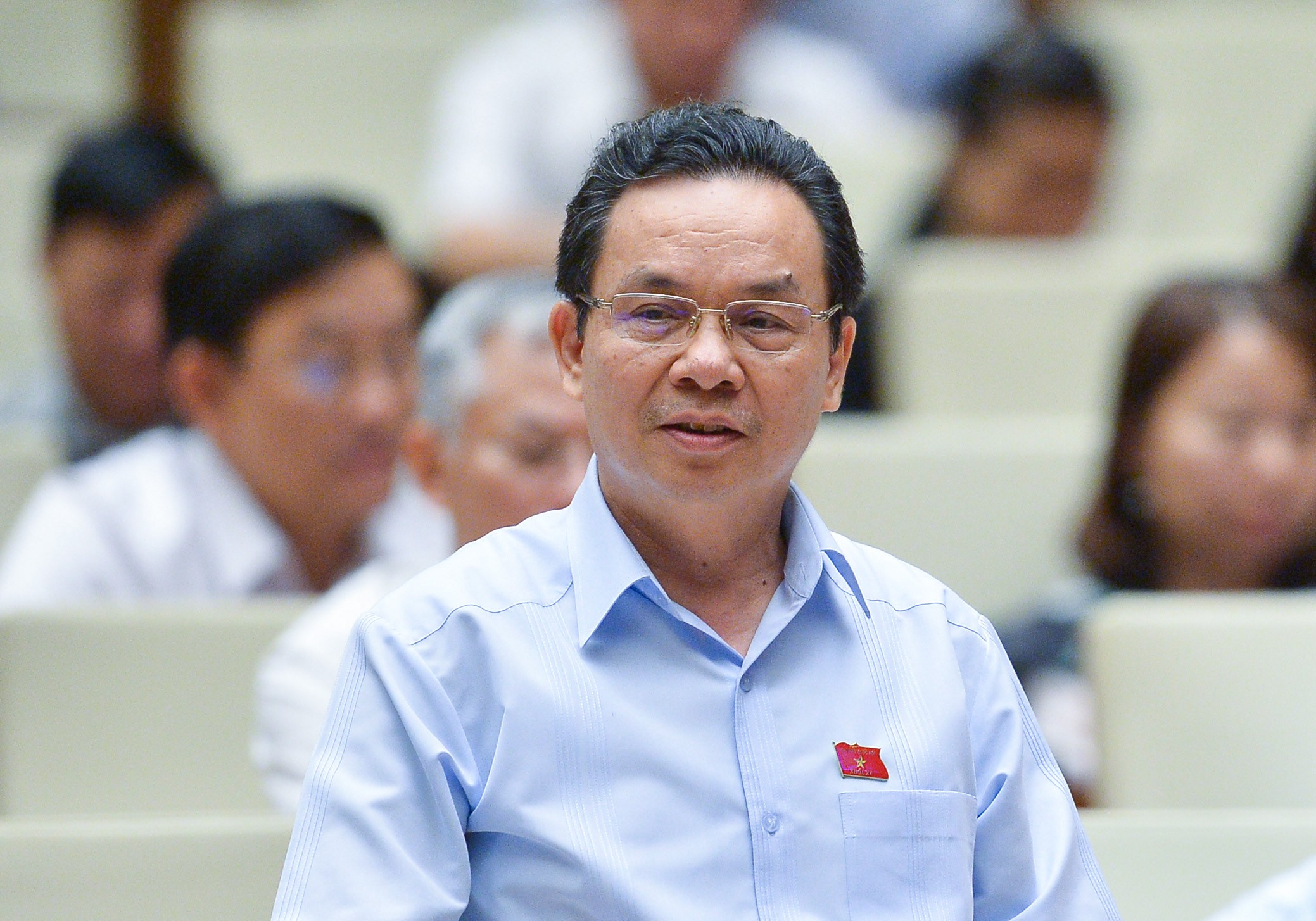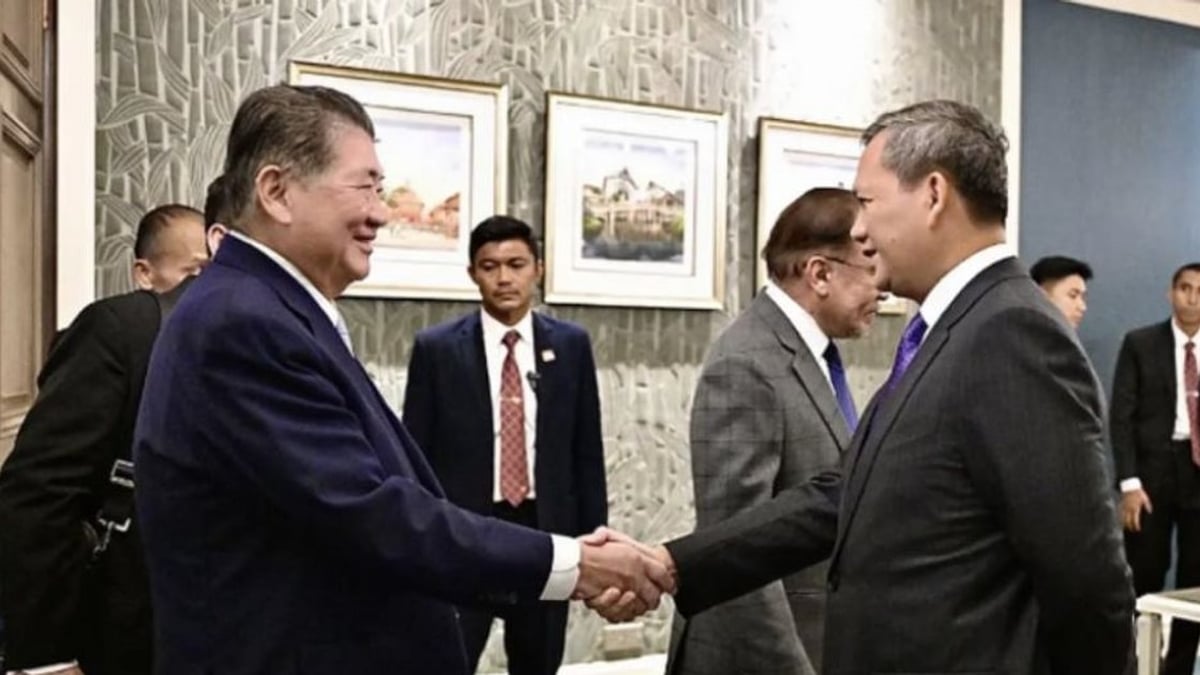Should be encouraged , not required.
Participating in giving comments on the Law on Real Estate Business on the afternoon of June 23, delegate Cam Ha Chung ( Phu Tho delegation) expressed disagreement with the provisions in the draft law requiring mandatory transactions through real estate exchanges.
The delegate also disagreed with the regulation that allows transactions that do not necessarily require notarization or contract authentication and can use the exchange's confirmation to make subsequent transactions. He commented that this regulation conflicts with the Constitution, the Enterprise Law, and the Investment Law.
Accordingly, the draft Law on Real Estate Business requires businesses and people to transact through an intermediary unit (trading floor), which shows signs of hindering the right to freedom of business according to Article 33 of the 2013 Constitution; the right to business autonomy, freedom to seek markets and customers according to Article 7 of the Law on Enterprises; as well as the right to self-determination and self-responsibility for business investment according to the Law on Investment.
“A real estate trading floor is a normal enterprise, not a state management agency, not a public service provider authorized by the state, so forcing entities to use services from normal enterprises will create inequality and violate the principles of equality in business,” said Mr. Chung.

Delegate Cam Ha Chung (Photo: Quochoi.vn).
Regarding the operation of real estate trading floors, Mr. Chung commented that the draft law allows trading floors to check real estate documents to ensure they meet the transaction conditions. Thus, part of the work of the real estate trading floor will overlap with the work of a notary when assessing legality.
Besides, it does not guarantee objectivity, because as an intermediary broker selling to investors, the trading floor will find every way to sell as much as possible to investors.
Therefore, there is no basis to guarantee that they will guarantee the rights of buyers, especially products with incomplete legal documents but high discounts. Investors can also set up many floors, create virtual transactions, and push up the selling price.
From there, Mr. Chung proposed that all transactions involving at least one individual party must be notarized. At the same time, he proposed that the bill encourage but not require any real estate transaction to go through the floor.

Delegate Duong Khac Mai (Photo: Quochoi.vn).
Delegate Duong Khac Mai ( Dak Nong delegation) also said that the regulation that the transaction confirmation paper through the floor is the basis for the subjects participating in the transaction to declare and pay taxes to the State, register changes, transfer ownership of assets, land use rights, etc. is unfounded.
Mr. Mai analyzed that, firstly, real estate trading floors cannot and should not regulate the selling price as the basis for calculating taxes. Because, it is impossible to confirm that the selling price through the floor is the actual buying and selling price of the parties because the subject can completely declare the transaction price through the floor lower than the real value, or higher than the real value for the purpose of tax evasion, or even money laundering.
Second, according to him, the basis for parties to register changes and transfer ownership rights has been specifically regulated in the Civil Code, Land Law, Housing Law and Notary Law. In particular, real estate transactions must ensure conditions to be considered legal, including authenticity and legality.
"Transactions through real estate trading floors only ensure that information about the transaction is transparent, but cannot confirm the authenticity or prove the legality of the transaction," said Mr. Mai, adding that the draft law has given real estate trading floors too many rights that are not within their functions and duties, and overlap and conflict with other laws.
"The drafting agency is requested to consider and revise regulations accordingly," Mr. Mai emphasized.
Real estate is a very special commodity.
Holding up a sign to debate with many delegates about the mandatory regulation of buying and selling real estate through the floor, delegate Hoang Van Cuong ( Hanoi delegation) said that real estate is a very familiar commodity to everyone, but when put into transaction, it is a very special commodity.
"Right among the delegates in this hall, I would like to ask how many delegates have bought and sold real estate or houses themselves without the help of a third person, acquaintance, or expert," said Mr. Cuong.

Delegate Hoang Van Cuong (Photo: Quochoi.vn).
The delegate said that even though there are no regulations, in reality, when making transactions, people still seek out intermediaries and brokers. The problem is how to find a professional.
Mr. Cuong cited that in countries with complete markets, brokerage is a professional profession, with very strict regulations and great responsibility. When contracts go through this trading floor, the brokerage unit must take full responsibility for the contract.
"Therefore, buyers and sellers who have gone through the floor can rest assured that there is no risk, no need to run back and forth, the floor is very professional," said Mr. Cuong, adding that the trading floors are only allowed to receive brokerage fees, not any difference in buying and selling.
The delegate said that professional real estate trading floors have better functions than current notary offices. Because notary offices can only check whether the contract is legal or not, whether the documents are complete, but cannot check other factors to ensure advice for buyers and sellers like the floor.
From there, Mr. Cuong proposed that the law must focus on very strict regulations on real estate brokerage, brokerage activities through the floor must be professional floors capable of assisting buyers and sellers, the extended arm of the State to grasp market information, avoiding the situation of chaos and fraud in the real estate market as recently .
Source

























![[Photo] National Assembly Chairman attends the seminar "Building and operating an international financial center and recommendations for Vietnam"](https://vphoto.vietnam.vn/thumb/1200x675/vietnam/resource/IMAGE/2025/7/28/76393436936e457db31ec84433289f72)











































































Comment (0)